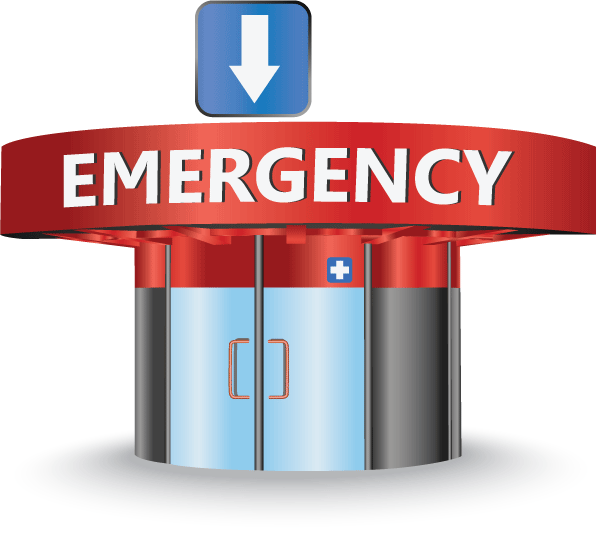“One thing I know: The only ones among you who will be really happy are those who will have sought and found how to serve.”
— Albert Schweitzer
The role of the emergency department has evolved over the years with the shifting climate of our society and the changes that have occurred within the American health care system. Developments in national health policies, new local regulations, a growing disparity between socioeconomic groups, and even global epidemics all seem to manifest first in our local emergency departments. As a result, the emergency department has become a sociological microcosm of modern society – a “moment in time” glimpse into the current state of American health care issues and the repercussions of the changes that have been made.
In addition, emergency departments, which have always provided care for the acutely ill, now serve a new role as the safety net for the entire health care system. The ED is frequently viewed as a safe haven or a sanctuary – similar, in a sense, to the role that churches have played throughout history. At all hours of the day, without a set appointment, void of insurance or other means to pay for care, and through every spectrum of disease severity, the emergency department is the place people turn to when in need. These discernments have become more prevalent in recent years and have helped to form a new sector within our specialty, appropriately known as “social” emergency medicine.
Our emergency departments have become a lens showing the effects of our ever-evolving health care system. We can observe the effects of societal shifts, whether positive or negative, by noting what occurs within the walls of our departments. We continue to note an increase in the number of patients seeking primary care in the emergency department while we see a decline of private insurance coverage. Many emergency departments have reported an increase in the number of ED visits after the implementation of the Affordable Care Act. When fears arose over the Ebola virus, it was often the emergency departments that implemented protocols and disseminated educational information to quell public fears; the ED is the quickest access point when it comes to findings answers.
Since we are at the forefront of this concept and observing firsthand the effects of change in a real-world application, we are also, therefore, tasked with providing notice to the public. We are called to brainstorm solutions and enact change. As research continues to grow in this realm of emergency medicine, more and more will be expected of us to become the advocates for addressing the problems we encounter through our practice.
In effect, we have chosen a specialty where service is at the core of what we do. We cater to not only the medical but also the social needs of many of the patients within our communities. Patients visit us seeking refuges from unsafe or abusive environments or in states of psychological crisis when they may even feel unsafe from themselves. Patients come to the ED when they have no other place to go.
Undoubtedly, there are those who view this as a failure of the health care structure and an indication that the entire system may be plummeting into inevitable chaos. There are those who are routinely frustrated by the countless “non-emergencies” and “social catastrophes” who seek the answer to life's problems by visiting the ED. They may have held tightly to the idea that in emergency medicine, we only provide life-saving intervention in an awe-inspiring, Grey's Anatomy-like hospital setting. But with any dichotomous view on a subject, there is an opportunity for collaboration, conversation, and change. Social support in times of crisis is essential for maintaining physical and psychological health, and it may also confer resilience to stress. Even the most subtle and positive interventions can have substantial effects on a patient's well-being and state of mind, which in turn can help a patient on the road to recovery. Since the stage is being set within the walls of our departments, it is our job to lead the charge and utilize our unique position in the medical community to positively impact the patients we encounter.
Tiny subsets of our world and society are crammed into the rooms and hallways of emergency departments around the country: the poor and the destitute seated next to the CEOs and the professionals, all seeking someone to come to their aid. It might be dry socks to cover their feet, reassurance that the chest pain is not another heart attack, a lifesaving imaging study that catches the tumor early, or simply a few sutures to close the wound. “Social” emergency medicine is another unique and respectable aspect of our field of medicine, and we should embrace it. We have the ability to reach patients on an entirely different level; helping vulnerable subsets of the population to rebuild from the ground up. In effect, we provide service to absolutely everyone – even those who are underserved, forgotten, brushed aside, or scorned by the general public.
We should be invigorated to be a part of a specialty where we can observe the effects of societal changes at large, and use that information to implement change and provide intervention in real-time on a day-to-day basis. Our job is, in fact, truly unique.



